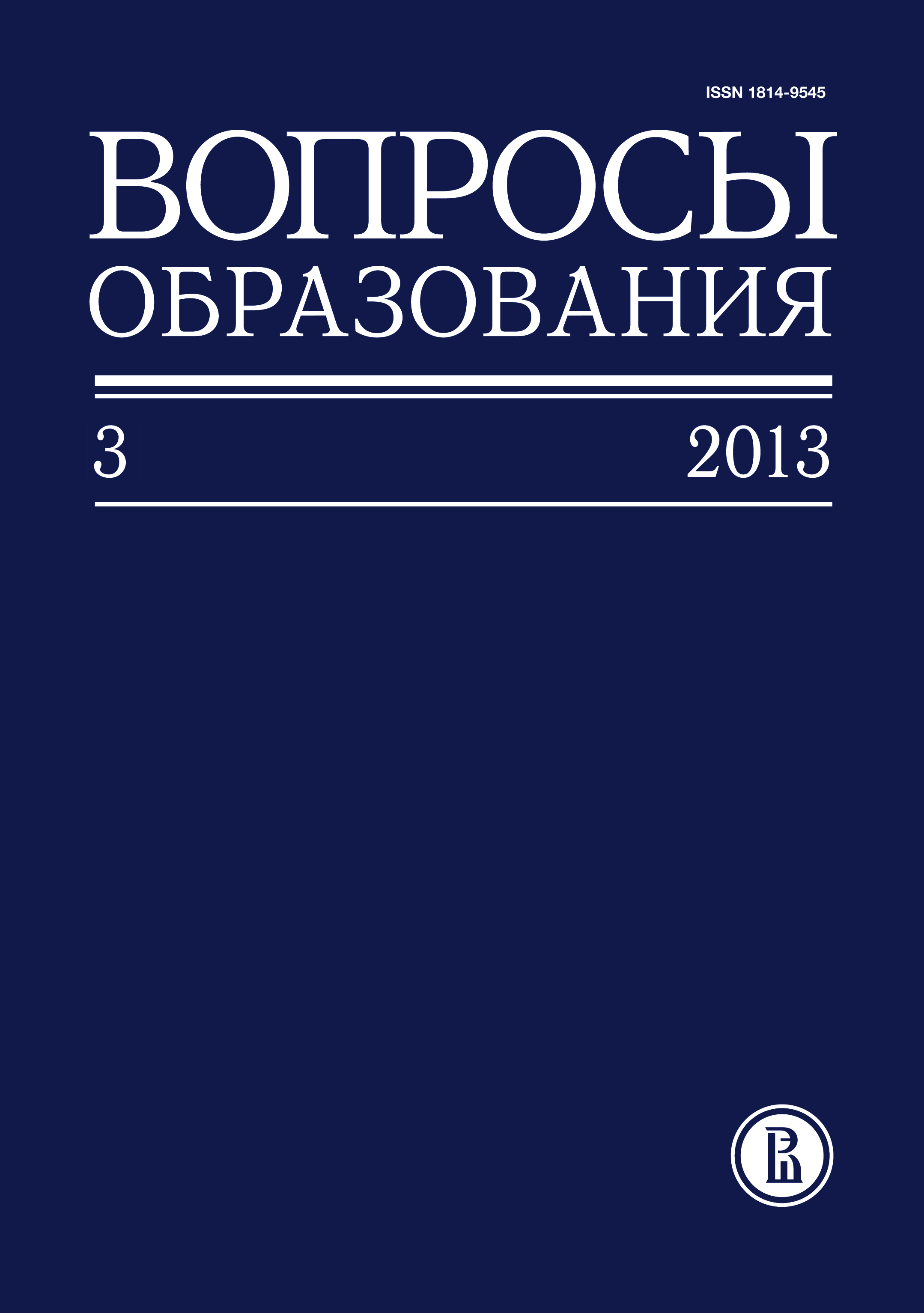Интерпретация и представление результатов ЕГЭ: проблемы и возможные решения
Аннотация
Боченков Сергей Анатольевич — эксперт независимого агентства оценки качества образования «Лидер». Эл. адрес: s_bochenkov@mail.ru Адрес: Независимое агентство оценки качества образования «Лидер» — Россия, 428003, г. Чебоксары, проезд Школьный, д. 10А, офис 11.
Вальдман Игорь Александрович — кандидат педагогических наук, заведующий лабораторией контроля и мониторинга в образовании Института управления образованием Российской академии образования. Эл. адрес: iavaldman@gmail.com
Адрес: Институт управления образованием Российской академии образования — Россия, 119121, Москва, ул. Погодинская, д. 8, корп. 2.
Обсуждаются возможности, ограничения и риски использования результатов ЕГЭ, обусловленные спецификой системы образования в стране и практикой проведения Единого экзамена. Рассматриваются особенности анализа и интерпретации результатов ЕГЭ для разных целей и для разных групп пользователей. Для каждой группы пользователей необходимо применять особую модель анализа и интерпретации результатов оценочной процедуры и свою систему ключевых показателей. Собственно результаты ЕГЭ без привлечения других данных могут использоваться лишь для двух целей: для подтверждения освоения или не освоения образовательной программы среднего общего образования и для отбора кандидатов на продолжение обучения в вузе. При оценке деятельности учителя, школы и образовательных систем результаты ЕГЭ могут использоваться лишь в сочетании с другими данными, характеризующими различные результаты деятельности. Результаты ЕГЭ должны выступать лишь одной из характеристик сложного портрета результатов учителя. При условии корректной интерпретации результатов ЕГЭ они могут быть использованы для управления качеством образования, в частности для объективного сравнения результатов обучения в разных территориальных системах и в разных учебных заведениях, а также для отслеживания динамики изменений. Правильно поданная информация позволяет делать верные заключения и принимать адекватные управленческие решения на каждом уровне.
Предлагаются варианты интерпретации результатов, ориентированные на учителя, школу и образовательную систему. Определена рамка требований к качеству работы учителя и школы через призму ЕГЭ.








